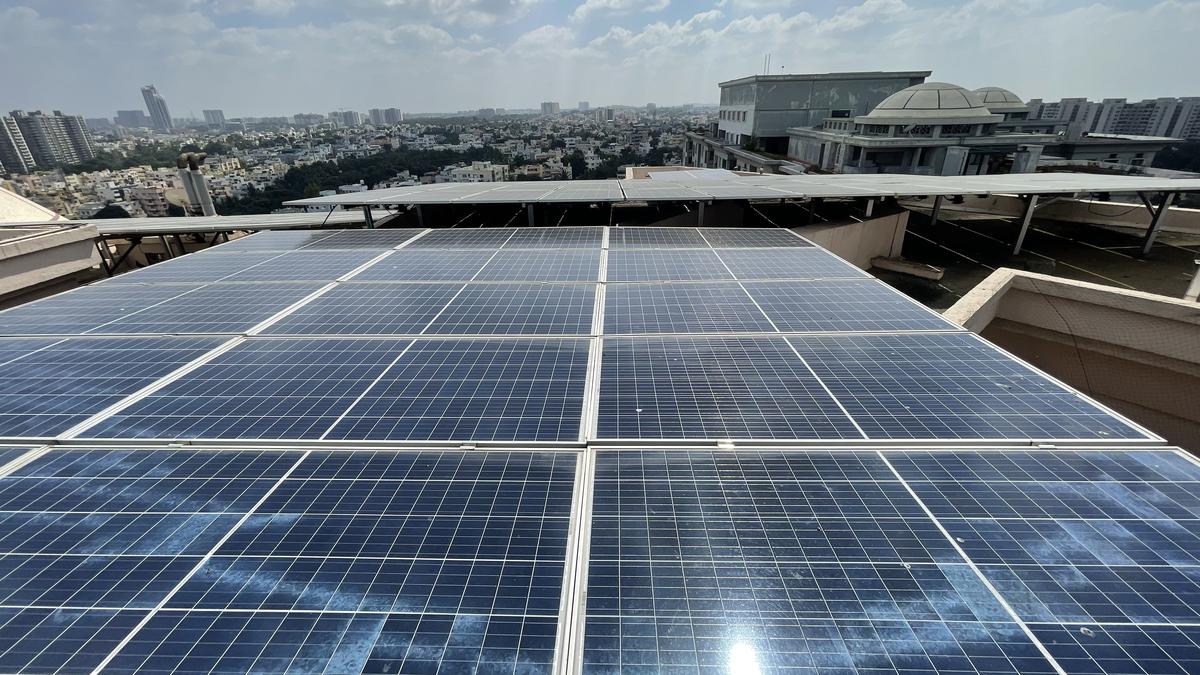
Boost for green energy: Delhi govt. clears draft solar policy
The Hindu
It targets raising share of solar energy in meeting annual electricity to 25% by 2025; benefits such as Generation Based Incentives and subsidy for consumers; views sought in next 30 days
Aiming to increase the share of the city’s annual electricity demand met by solar energy from 9% at present to 25% by 2025, the Delhi government on Thursday cleared the draft Delhi Solar Policy 2022.
The draft, which targets a total installed solar capacity of 6,000 megawatt by 2025, has been put in the public domain for 30 days for comments from stakeholders, after which it will be tabled before the Cabinet for final approval.
Deputy Chief Minister and Power Minister Manish Sisodia said the policy provides a host of benefits through Generation Based Incentives (GBI) and capital subsidy for residential and commercial consumers to adopt solar energy, besides introducing innovative models of solar deployment.
“For the first time in the country, consumers will have an opportunity for community solar and peer-to-peer (P2P) trading,” he said.
Community solar will enable consumers who do not have a suitable roof for installing a solar set-up to be owners of a part of a larger solar energy system set by a developer within an available land parcel, while P2P trading of solar energy will enable owners of solar energy systems to sell their excess generated electricity in real-time via a P2P energy trading platform, the government said.
The policy has been prepared by the Dialogue and Development Commission of Delhi (DDC) after stakeholder consultations with the industry, consumers, government entities, financing institutions, and clean energy think-tanks. Along with increasing solar energy consumption, the policy also aims to generate over 12,000 green jobs, the government said in a statement.
It also encourages discoms, power distribution companies, to increase the share of solar energy procured from outside the NCT of Delhi.

Andhra Pradesh CM Chandrababu Naidu inaugurates CNG, PNG projects in Rayalaseema region. Andhra Pradesh has the unique distinction of being the second largest producer of natural gas in India, thanks to the Krishna-Godavari (KG) Basin, he says, adding the State will lead the way towards net-zero economy.










